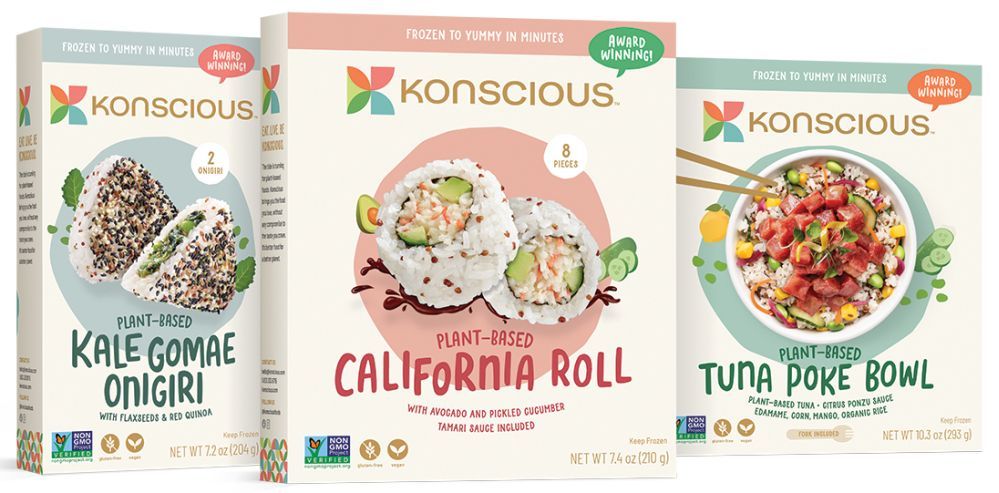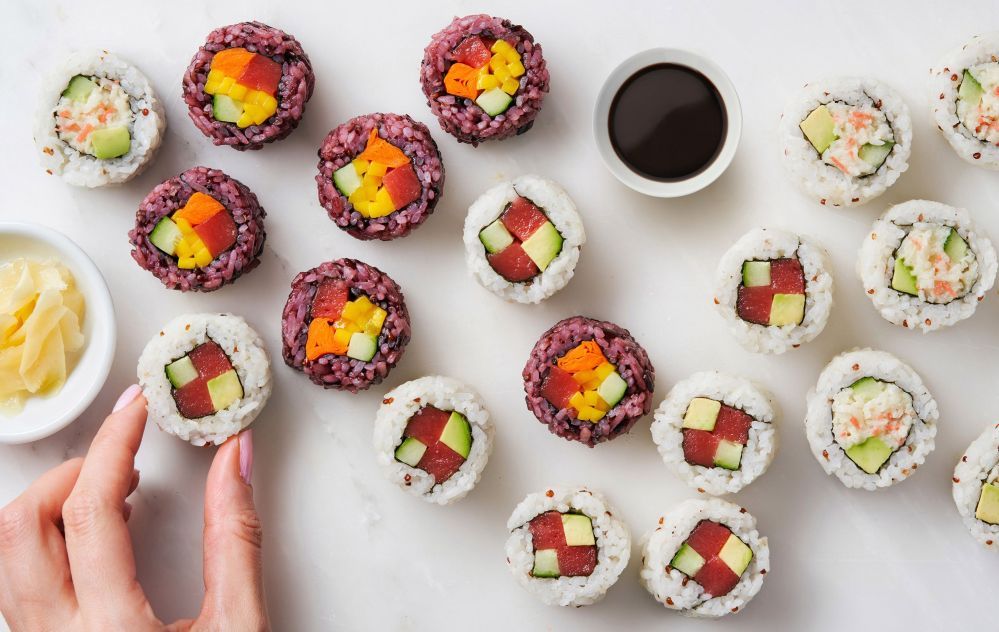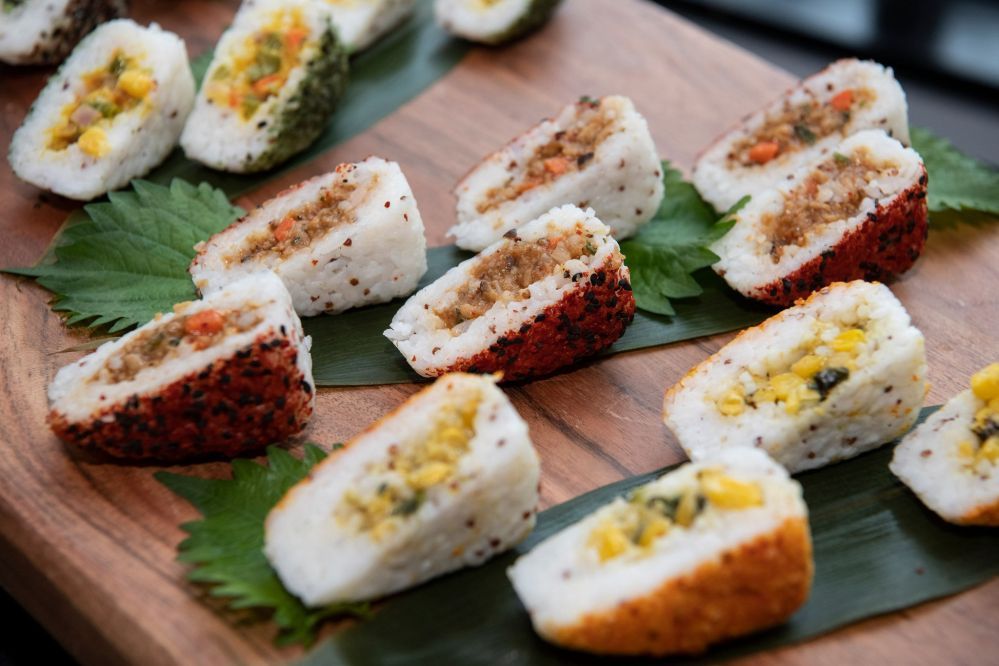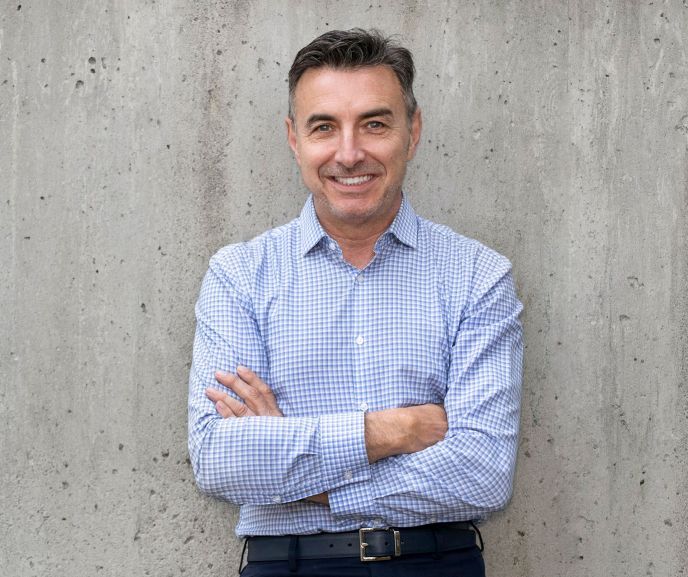While many alt meat startups are desperately struggling to raise cash, plant-based seafood brand Konscious Foods has just raised a cool $26 million.
The figure is eye-catching for a seed round given the recent wave of alt protein business failures, grim retail sales data, and the huge drop off in venture funding for foodtech. However, this is not the first rodeo for founder and president Yves Potvin.
A classically trained chef, Potvin built and sold two successful brands: Yves Veggie Cuisine (sold to Hain Celestial in 2001) and Gardein (sold to Pinnacle Foods, now part of Conagra Brands, in 2014) before attempting to strike CPG gold for a third time with British Columbia-based Konscious Foods, a new frozen food brand with a distinct culinary vibe.
But what makes Potvin think there’s sizable consumer demand for plant-based seafood, an arguably niche category* that has not yet set the world on fire, despite the laundry list of problems linked to conventional seafood, from overfishing and bycatch to heavy metal contaminants and microplastics?
AgFunderNews (AFN) caught up with Potvin (YP) to find out.
AFN: Tell us about the genesis of Konscious Foods
YP: This is an idea I’ve been working on for a couple of years. In the beginning it was self-funded and backed by a group of small family and friends, but over the past year we started putting together some institutional funding and we closed a round in July of this year of CAD $26 million ($19.3 million).
AFN: What’s the manufacturing set up?
YP: I’m not really a co-packer type person because you’re never better served than by yourself, and we have developed proprietary know-how, so we have a 34,000 square feet facility in Richmond, British Columbia, right near Vancouver Airport.

AFN: What’s in your ingredient toolbox for reproducing the flavors, textures and nutrition of seafood?
YP: We acquired the technology of Ocean Hugger Foods [a New York-based startup using vegetables as a base rather than extruded plant proteins that ran into difficulties in 2020] a couple of years ago. The technology is expensive but we’ve learned from what they were doing and kind of reinvented it.
So our base product for tuna is organic tomato, and then the binding agent is [a root vegetable called] konjac, which is used commonly in Asia. For salmon, our first ingredient is organic carrot and then konjac. All of the products are Non-GMO Project verified, with no artificial colors, no titanium dioxide, just clean ingredients and organic where possible.
AFN: Most alt seafood products have a base of extruded plant protein. Is there a reason you’re avoiding this?
YP: At Gardein, we were really the first to commercialize high moisture extrusion [using heat and pressure with >40% moisture that delivers a more fibrous, striated, meaty texturized plant protein that must be chilled or frozen], but it’s a very expensive technology. Those [twin-screw extrusion] machines cost millions of dollars and you need to produce 1,000 kilos an hour to make it viable. So we’re not using it.
AFN: If tomatoes and carrots are your base, what does this mean for the protein and omega-3 content of your products?
YP: We add some pea protein and I think we’re about 25% less protein than traditional fish with a goal of getting to the same protein level. But I always say to people, ‘When you go to a sushi restaurant do you look at the protein content before you order?’ No you don’t. Another thing people don’t think about is that in most sushi restaurants, there’s about 1,000 milligrams of sodium per roll. Ours is 210mg. To provide DHA omega-3s, we add algal oil.
“The products offered by Konscious Foods represent a significant shift in the plant-based food space. It proves that meat-alternatives do not need to be highly processed, filled with unnatural ingredients or cost more than the incumbent products.” Pierre Somers, chairman and CEO, Walter Group.

AFN: Where do you fit into the plant-based seafood segment in North America?
YP: We are a plant-based business, but that’s not how I think about the competitive set. I’m running a food business; it’s about operations, margins, branding, and consumer trust, and that’s the case whether you’re plant-based or not. And some of our products don’t have any [plant-based] seafood in them at all, such as our onigri snacks.
The reason we’ve launched so fast is that Konscious Foods is all about healthy convenience foods with flavors and textures that appeal to a younger generation… roast poblano, Korean BBQ mushroom, pickled cucumber…
It’s not about plant-based seafood [per se], it’s about innovation. One buyer told that this is the most innovative product I’ve seen coming in front of my desk in the last five years. The other important thing is that its does not cost any more than its [conventional seafood-based] counterparts.
One of the biggest challenges in plant-based is that the products are often 20-50% more expensive, so not only do consumers have to sacrifice on taste and the texture, they have to spend more money. We are the first in the marketplace at the same price [as conventional seafood products]. So we’re ticking all the right boxes.
AFN: What kind of market testing did you do on these products?
YP: We did a beta test in Canada for about eight months in about 200 supermarkets and so we had good data on repeat sales and consumer acceptance. It really helped us fine tune the product. As an example, we originally had wasabi, but we realized 50% of people don’t like it, so it’s all about listening to the consumer.
AFN: What’s the go-to-market strategy?
YP: We started production about two months ago and we already have national distribution in Whole Foods [frozen section] and Sprouts. We have Wegmans, Meijer, and we’re launching with Albertsons, Safeway and Harris Teeter in October. So we are aiming to be in about 4,500 supermarkets [in North America] by the end of the year. We’re also going to be the exclusive [plant-based] supplier in Whole Foods’ foodservice sushi counters, so they’re going to use our snow crab, our tuna, and our salmon.
“Konscious Foods has created true alternatives to some of the world’s most important seafood products and without sacrificing quality, which is a feat unmatched by others in the plant-based food space. This financing round is also a testament to Yves Potvin’s vision and track record.” Iqbal Kassam, chairman, Zynik Capital

AFN: What’s your take on what’s happening in the North American meat alternatives market?
YP: Eventually, a company has to be profitable. So many of those companies don’t have a margin sufficient enough to be profitable, and you can’t just keep raising money. Our margins are good, and we hope to be profitable by next year. And that is the key. It’s great to have a dream. It’s great to change the world. But you’re still running a business and at some point you have to make a profit
In the early 20th century there were hundreds of car manufacturers in America and there were a lot of poor manufacturers, and that is unfortunately where we are with plant-based. [When cheap money was being thrown at alt protein companies a couple of years ago] it was a bit like the dot.com market in 2000.
But having money can be a curse too, and it’s given a bit of a black eye to the whole plant-based business. You can’t keep losing money and expect to stay in business.
AFN: Is technology the answer, or is assuming tech will solve everything part of the reason we’re in the situation we’re in now?
YP: The technology is interesting but it’s not the answer to everything. Is the future cellular meat or fish? I don’t know, but the question is is it going to be perceived as Frankenstein food? I’m not sure that technology will save the world. I think you need more companies like ours that use quality ingredients that just make the experience pleasant and affordable for the consumer.
*According to SPINS data, US retail sales of plant-based seafood rose 15% to $14 million in 2022.






